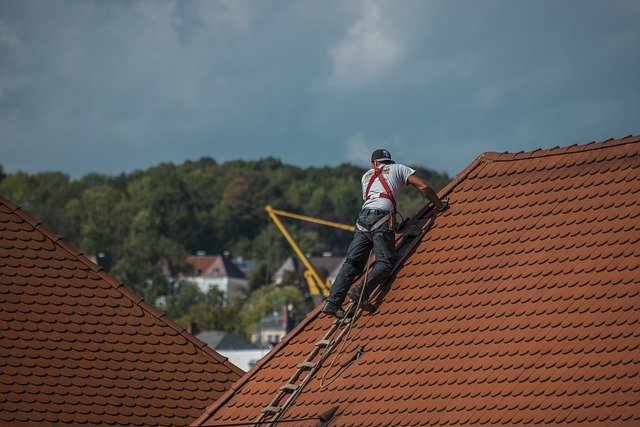Roofing Jobs in Japan: Skilled Labor Opportunities and Work Conditions in 2025
Roofing jobs in Japan are part of the country’s essential construction and maintenance industry. These roles typically involve physical labor, work at heights, and adherence to strict safety standards. While most positions require Japanese language ability, some companies may accept foreign workers with relevant experience and proper work visas.

What are the typical tasks in Japanese roofing jobs?
Roofing professionals in Japan engage in a variety of essential tasks to ensure buildings are protected from the elements. These tasks often include:
-
Tile installation: Precision laying of traditional Japanese kawara tiles or modern alternatives.
-
Waterproofing: Applying sealants and membranes to prevent water infiltration.
-
Repairs: Identifying and fixing leaks, replacing damaged materials, and addressing structural issues.
-
Inspections: Conducting thorough assessments of roof conditions and recommending maintenance.
-
Installation of solar panels: As Japan embraces renewable energy, many roofers are now involved in solar panel installation.
Roofing work in Japan often requires attention to detail and an understanding of both traditional and modern roofing techniques.
What skills and certifications are required for roofing jobs in Japan?
Roofing in Japan demands a unique set of skills and qualifications:
-
Physical fitness: The ability to work at heights, lift heavy materials, and endure various weather conditions.
-
Technical knowledge: Understanding of different roofing materials, installation techniques, and safety protocols.
-
Safety certifications: Completion of recognized safety training programs, such as the Japan Construction Occupational Safety and Health Association (JCOSHA) certification.
-
Craftsmanship: Especially important for traditional roofing styles, which require specific techniques passed down through generations.
-
Adaptability: Willingness to learn new technologies and methods as the industry evolves.
It’s worth noting that while formal education in construction is beneficial, many roofing skills are acquired through on-the-job training and apprenticeships.
What visa types are available for foreign workers in Japan’s construction sector?
For foreign nationals interested in roofing jobs in Japan, several visa options may be available:
-
Specified Skilled Worker (SSW) visa: Introduced in 2019, this visa allows foreign workers with specific skills to work in designated sectors, including construction.
-
Technical Intern Training Program: This program allows foreigners to work and receive training in various industries, including construction, for up to five years.
-
Engineer/Specialist in Humanities/International Services visa: For those with relevant degrees or extensive experience in construction-related fields.
It’s crucial to understand that visa eligibility and requirements can change, and obtaining a work visa often requires sponsorship from a Japanese employer. Prospective workers should consult the latest information from the Japanese Immigration Services Agency.
What are the language requirements for roofing jobs in Japan?
Communication is vital in the construction industry, especially for safety reasons. Language requirements for roofing jobs in Japan typically include:
-
Basic to intermediate Japanese language skills: Essential for understanding instructions, communicating with team members, and ensuring workplace safety.
-
Technical vocabulary: Familiarity with construction and roofing-specific terms in Japanese.
-
Safety-related communication: Ability to understand and convey safety warnings and procedures.
While some international construction companies may use English on certain projects, proficiency in Japanese is generally expected for most roofing positions. Many employers offer language support or training programs to help foreign workers improve their Japanese skills.
What are the standard work conditions for roofers in Japan?
Working conditions in the Japanese roofing industry are influenced by labor laws, seasonal demands, and industry standards:
-
Work hours: Typically 8 hours per day, 40 hours per week, with overtime pay for additional hours.
-
Seasonal demand: Busier periods often occur in spring and autumn when weather conditions are more favorable for roofing work.
-
Safety measures: Strict adherence to safety protocols, including the use of personal protective equipment and regular safety training.
-
Training programs: Many companies offer ongoing training to keep workers updated on new techniques and safety standards.
-
Social insurance: Employers are required to provide health insurance, pension, and unemployment insurance for full-time employees.
It’s important to note that working conditions can vary between companies and specific job roles. Prospective employees should carefully review job descriptions and contracts before accepting any position.
In conclusion, the roofing industry in Japan offers diverse opportunities for skilled workers, both domestic and foreign. While the work can be physically demanding, it plays a vital role in maintaining Japan’s infrastructure. As with any career move, thorough research and preparation are essential for those considering entering this field.
This article is for informational purposes only and does not constitute job offers or guarantee employment opportunities. Individuals interested in roofing jobs in Japan should conduct further research and consult with relevant authorities or potential employers for the most up-to-date and specific information regarding job availability, visa requirements, and working conditions.




